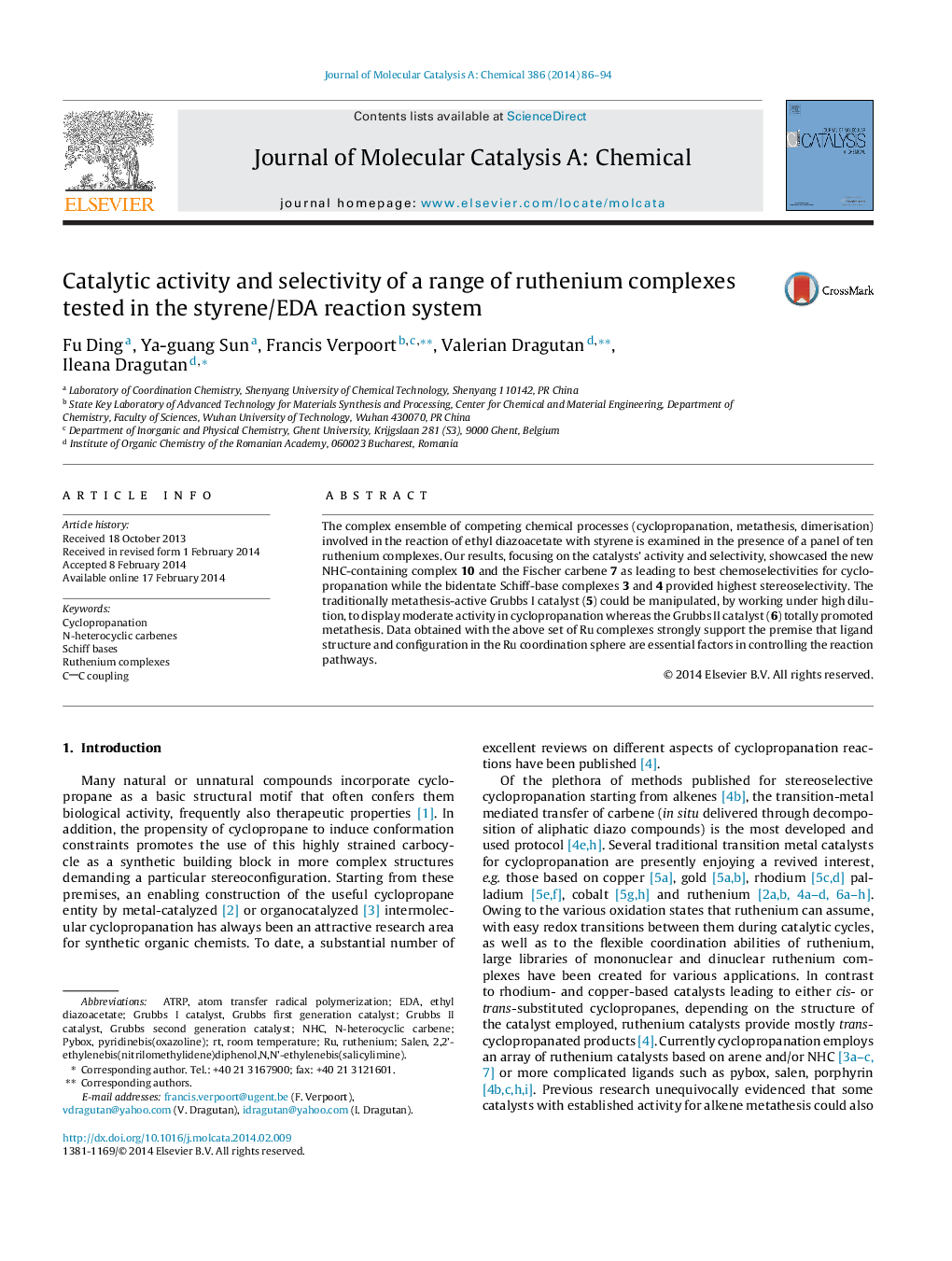| کد مقاله | کد نشریه | سال انتشار | مقاله انگلیسی | نسخه تمام متن |
|---|---|---|---|---|
| 65548 | 48395 | 2014 | 9 صفحه PDF | دانلود رایگان |

• Ten Ru-catalysts were tested in carbenoid transfer in the styrene/EDA system.
• Competitive cyclopropanation, metathesis and dimerisation were quantified.
• Activity and selectivity depend essentially on the type of Ru-catalyst.
• Catalysts 10 and 7 outperform all the other Ru-complexes in terms of selectivity.
• The unexpected propensity of the Grubbs I catalyst for cyclopropanation was evidenced.
The complex ensemble of competing chemical processes (cyclopropanation, metathesis, dimerisation) involved in the reaction of ethyl diazoacetate with styrene is examined in the presence of a panel of ten ruthenium complexes. Our results, focusing on the catalysts’ activity and selectivity, showcased the new NHC-containing complex 10 and the Fischer carbene 7 as leading to best chemoselectivities for cyclopropanation while the bidentate Schiff-base complexes 3 and 4 provided highest stereoselectivity. The traditionally metathesis-active Grubbs I catalyst (5) could be manipulated, by working under high dilution, to display moderate activity in cyclopropanation whereas the Grubbs II catalyst (6) totally promoted metathesis. Data obtained with the above set of Ru complexes strongly support the premise that ligand structure and configuration in the Ru coordination sphere are essential factors in controlling the reaction pathways.
Figure optionsDownload high-quality image (122 K)Download as PowerPoint slide
Journal: Journal of Molecular Catalysis A: Chemical - Volume 386, May 2014, Pages 86–94